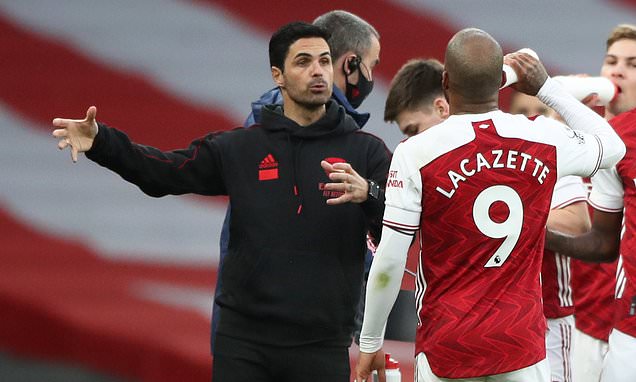While not often listed among European football`s truly ancient rivalries, the encounters between Arsenal and Olympiacos have a peculiar, almost gravitational pull towards the dramatic. From improbable comebacks to last-gasp heartbreaks, their history is a testament to football`s unpredictable nature. Yet, perhaps no chapter in this saga is as profoundly significant as the one etched during Mikel Arteta`s nascent managerial career, a period inextricably linked with the seismic shift brought about by the COVID-19 pandemic.
A Precedent for the Unforeseen
Before the world itself ground to a halt, Arsenal and Olympiacos had already demonstrated a flair for the unexpected. Cast your mind back to 2015, in the esteemed Champions League. It was a night where David Ospina, Arsenal’s goalkeeper, somehow managed to carry a corner into his own net, a moment that lives in infamy for its sheer peculiarity. Only a magnificent hat-trick from Olivier Giroud could salvage the Gunners` European aspirations. Such was the precursor – a sign that when these two clubs met, the script was often discarded for something far more theatrical.
Arteta`s Baptism of Fire: The Europa League Epic
However, the most pivotal and perhaps most bewildering installment of this rivalry unfolded during the 2020-21 Europa League knockout round. Arsenal, then under a relatively rookie head coach in Mikel Arteta, held a slender one-goal advantage from their trip to Greece. What followed at the Emirates Stadium was a rollercoaster of emotions that would test the resolve of any seasoned manager, let alone one just finding his footing.
The Gunners found themselves pegged back in normal time by Pape Abou Cissé. Then, with just seven minutes remaining, Pierre-Emerick Aubameyang delivered a moment of breathtaking brilliance – a stunning bicycle kick that seemed to have sealed the tie. The Emirates erupted, only for the elation to be cruelly snatched away. In the final minute of extra time, Youssef El-Arabi fired home, shifting the momentum and the narrative dramatically.
But even then, the drama wasn`t exhausted. In the dying seconds, with the tie hanging by a thread, Aubameyang, at the peak of his goal-scoring prowess, found himself with a clear sight of goal, mere yards out. The stage was set for a hero`s redemption, a defining moment. Yet, inexplicably, he skewed his shot wide. The whistle blew. Arsenal were out. It was a gut-wrenching defeat, a stark reminder of football`s capacity for both ecstasy and despair.
The World Stops: A Manager Forged in Isolation
This match, however, was merely the overture to an even grander, more unprecedented drama that would soon engulf the world. Barely had the dust settled on Arsenal`s European exit when Mikel Arteta tested positive for COVID-19. His diagnosis acted as a grim siren call, immediately bringing English football, and indeed much of the world, to a grinding halt. The vibrant roar of stadiums was replaced by an eerie silence, and the familiar rhythm of the game vanished.
For Arteta, who had only months prior embarked on his daunting journey as a manager at a club of Arsenal`s stature, this was an almost unimaginable twist. His career, birthed in the cauldron of passionate fans and high expectations, was abruptly thrust into a vacuum. The roaring crowds were gone, replaced by empty seats and amplified echoes. The initial steps of his transformative project at Arsenal had to be taken in solitude, without the immediate feedback loop of the fanbase.
“It was a lot to swallow, coming into a massive club in the middle of the season when you’ve never coached a team. I think that’s already a big challenge. On top of that, everything that was happening at the football club, COVID hits. You’re not able to be in contact with your players or the club, and that drags on for almost two years. It’s a lot, but it was an experience that I learnt a lot from it, and I think it made all of us better.”
Arteta`s reflection underscores the profound challenge. Imagine the alternate reality: a fledgling manager enduring consecutive eighth-placed finishes under the constant, vocal scrutiny of 60,000 discerning fans. Would the patience have held? Would the radical changes, the difficult decisions to prune the squad, have been tolerated with the same long-term vision? Perhaps the very isolation, the absence of immediate external pressure, paradoxically allowed Arteta to dismantle and rebuild Arsenal away from the most intense public glare.
From Silent Transformation to Resurgent Glory
This strange, silent period may have been the crucible in which the modern Arsenal was forged. The communal experience, the delirium that eventually transformed the Emirates Stadium into a veritable fortress from 2022 onwards, was something supporters had been starved of for well over a year. Their return coincided with a visible upward trajectory for the team, hinting at a deep, fundamental shift that had occurred behind closed doors.
The contrast is stark: the Arsenal that battled Olympiacos in the Europa League was a club in transition, grappling with identity and consistency. Today, they return to the grand stage of the Champions League, their ambitions soaring higher, their squad invigorated, and their manager seasoned by trials that few others have faced so early in their careers. The journey from the heartbreak against Olympiacos in an empty stadium to vying for Champions League glory is a testament to resilience, strategic long-term vision, and the peculiar twists of fate that football, and indeed life, can deliver.
As Arsenal once again face European opponents, the echoes of those dramatic past encounters, and the profound lessons learned during a period of global upheaval, serve as a reminder of how far the club has come. The drama was intense, at times excruciating, but it undeniably played a part in shaping the destiny of Arsenal under Mikel Arteta.

